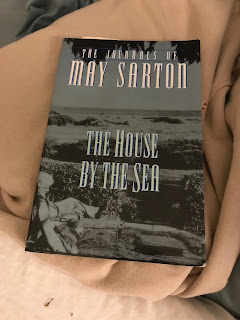"On your record deck, you played the sound of the middle passage, the blackest sound. You wanted the suffering you didn’t have, the authority you thought it would bring...Then came the terror when the real darkness first seeped through the walls of your bedroom, the walls designed to keep you safe and dreaming. And finally your rising sense of shame when you admitted to yourself that you were relieved the walls were there. The shame of knowing that you would do nothing, that you would allow it all to carry on."
White Tears by Hari Kunzru is a strange, challenging, compelling book. I almost returned it to the library after the first 50 pages because it seemed to be yet another book about socially-dysfunctional, weirdly-obsessive white guys. The writing and the development of the plot kept me going. That's the author's gift, I guess: to compel me to read a book I think doesn't interest me that actually ends up interesting me. In the end, the white guys are just the vehicle, the cheval, for a story about lost blues musicians, the danger of obsession, futile white guilt, mass incarceration, cultural appropriation, and the powerlessness of being outside of the ruling oligarchy that is America.
Reading it made me feel a little crazy: obsessive and guilty and miserable about both our past and our present. I wonder if people who didn't grow up in the south surrounded by blatant racism and hyper-aware of their own ancestors' roles feel the same kind of pervasive guilt about the past that I feel when confronted with these truths. It feels horrifying and crippling, and I don't know what to do about it. Where does the guilt of the ancestors end and my own guilt begin? For I also am relieved that the walls are there for me, and I too am riding the easy waves instead of fighting the current.
This book was well-written with many deep, affecting themes woven into a short narrative, and the plot will keep you guessing until the end. Honestly, I'm still not 100% sure what actually happened and what didn't. It's definitely not a feel-good book, so if you're looking for that, look elsewhere, but in my opinion, it's worth reading, studying, absorbing. This post feels unfinished because I feel like this book is not finished with me yet.




5 comments:
You wrote a very powerful post. The book sounds like it is thought provoking. The issues that you bring up here are ones that are currently generating a lot of discussion on social media, blogs and articles that cover social issues, etc. I believe that one role of literature is to get folks thinking and talking about these things.
Thanks, Brian. I agree that one of the roles of literature is to challenge and broaden us. How small my mind would be had I never read a book!
I'm not sure I would've made it through this one! But it does sound compelling.
Hi Lark, thanks for visiting. It actually was pretty easy to read, and considering the subject matter, not terribly upsetting. I have a hard time with dark material sometimes because it messes up my own emotions, but that didn't happen here. This one challenged my mind more than my emotions, which I prefer and seems more productive in the long run.
Nice review. It sounds challenging and good at the same time. I know what you mean by an unfinished post and not totally being sure of what actually happened ... that has happened to me with books a few times!
Post a Comment